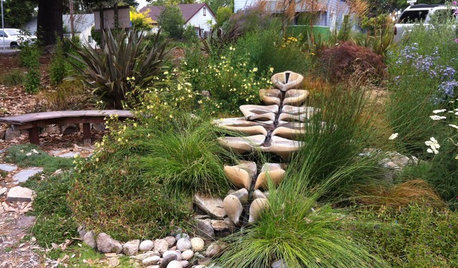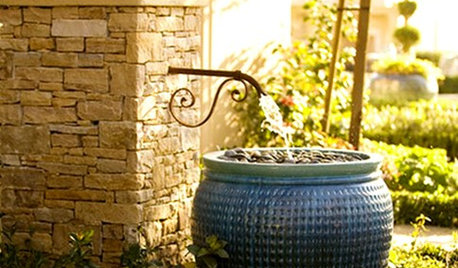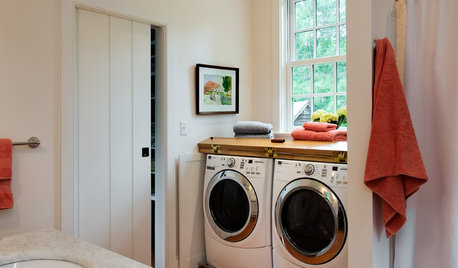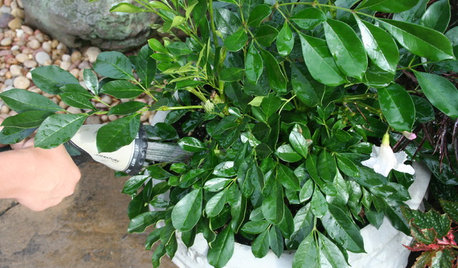Figuring water usage
littledog
19 years ago
Related Stories

SAVING WATER11 Ways to Save Water at Home
Whether you live in a drought-stricken area or just want to help preserve a precious resource, here are things you can do to use less water
Full Story
LANDSCAPE DESIGNGet Along With Less Lawn — Ideas to Save Water and Effort
Ditch the mower and lower your water bill while creating a feast for the eyes with diverse plantings and gathering places
Full Story
LIFEThe Top 5 Ways to Save Water at Home
Get on the fast track to preserving a valuable resource and saving money too with these smart, effective strategies
Full Story
LANDSCAPE DESIGNNew Ways to Design With Water
Go beyond 3-tiered fountains and faux waterfalls to discover water's architectural possibilities
Full Story
GREEN BUILDINGJust Add Water: Rain Barrel Magic
Take your rainwater storage from practical to beautiful with a new breed of design-friendly rain barrels
Full Story
GREEN BUILDINGWater Sense for Big Savings
Keep dollars in your pocket and preserve a precious resource with these easy DIY strategies
Full Story
HEALTHY HOMEHow to Choose a Home Water Filtering System
Learn which water purification method is best for your house, from pitchers to whole-house setups
Full Story
DECKSA Family-Friendly California Yard Wises Up About Water
Pavers and unthirsty plants replace Kentucky bluegrass in a Menlo Park landscape for a family of 4
Full Story
CONTAINER GARDENSContainer Garden Basics: How and When to Water Potted Plants
Confused about soil moisture, the best time to water and what watering device to use? This guide can help
Full Story
LANDSCAPE DESIGNHow to Design Your Landscape to Slow Down Water
Putting the brakes on stormwater runoff is the first step in sustainable water design
Full StorySponsored






brickeyee
littledogOriginal Author
Related Professionals
Phoenix Solar Energy Systems · Santa Maria Solar Energy Systems · Eden Prairie Solar Energy Systems · East Hanover Solar Energy Systems · Saratoga Solar Energy Systems · Honolulu Design-Build Firms · Beavercreek Home Builders · Reedley Home Builders · Riverbank Home Builders · Seguin Home Builders · Parkway Home Builders · Buenaventura Lakes Home Builders · Hudson Roofing & Gutters · New Lenox Roofing & Gutters · Thousand Oaks Roofing & GutterslittledogOriginal Author
Brewbeer
booster
littledogOriginal Author
booster
littledogOriginal Author
booster
DNT1
rjoh878646
joyfulguy
rainwater1
lazypup